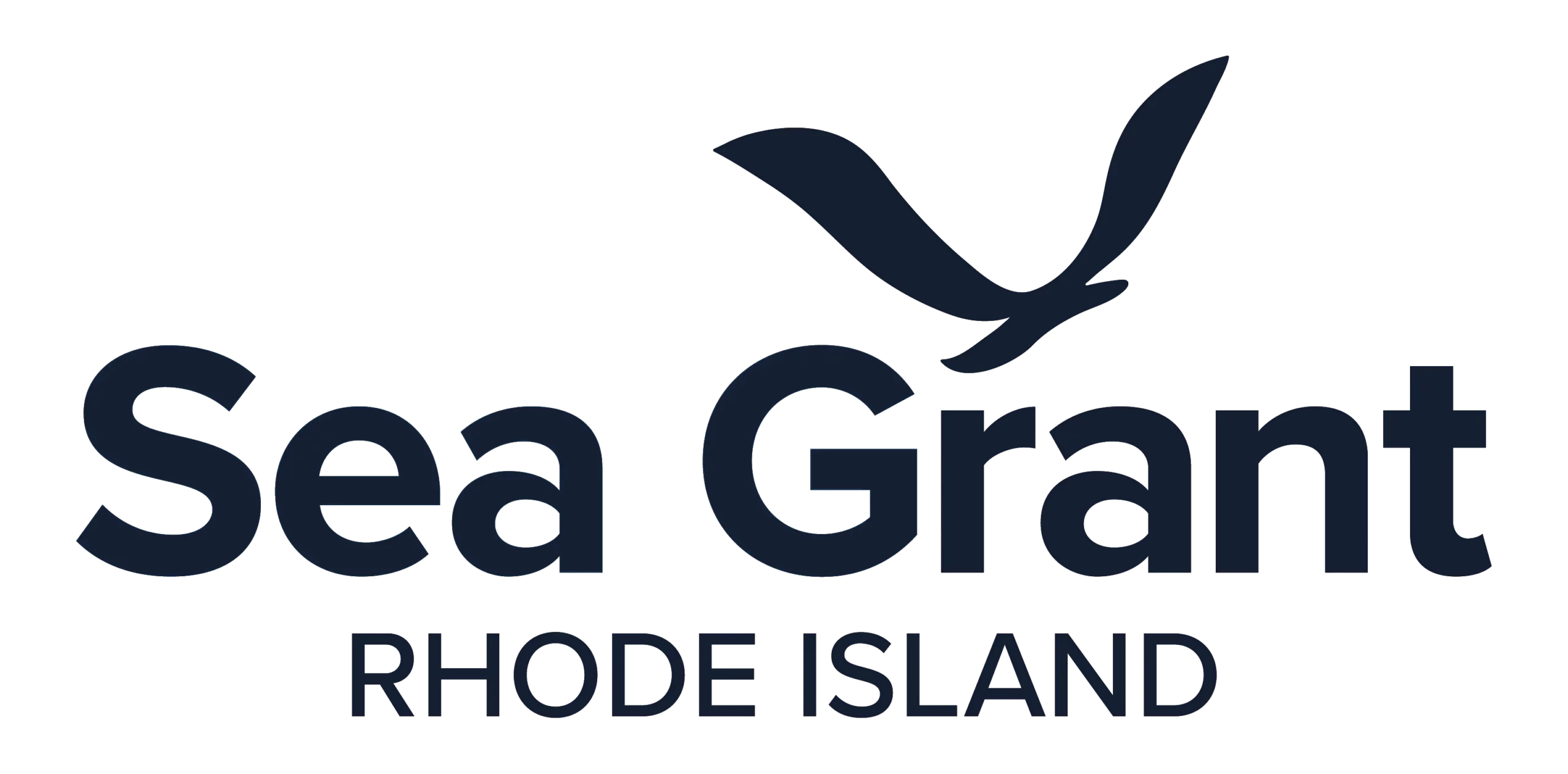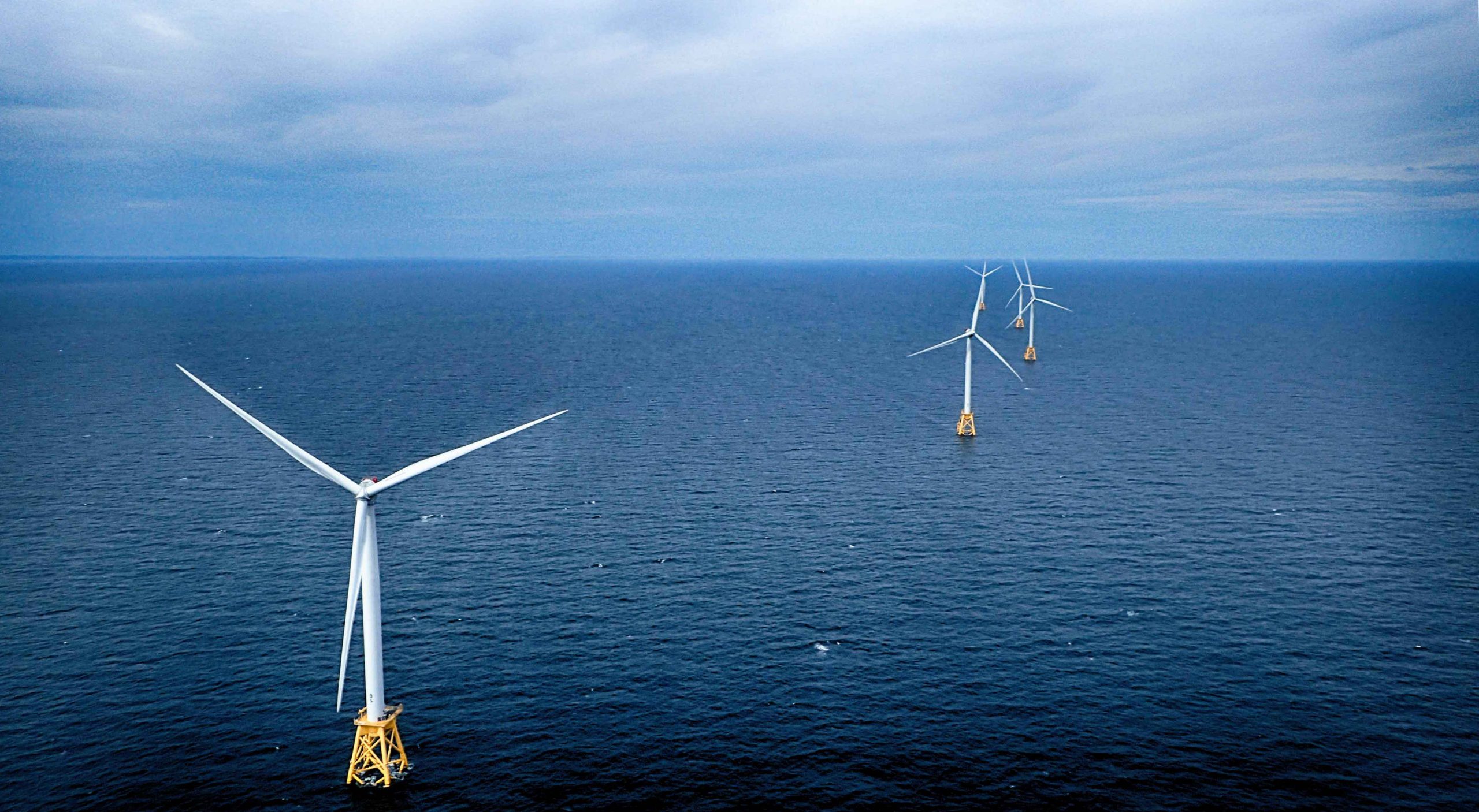Planners, members of the fishing industry, and developers share what went well with Block Island Wind Farm—and what could have gone better—to aid future development
Wind farm photo courtesy of Wikimedia Commons by Ionna22
Planning for the nation’s first offshore wind farm began over 10 years ago, and the Block Island Wind Farm, in operation since 2016, remains the only one in the U.S.
However, plans for a number of much larger wind farms are underway along the East Coast, and with that in mind, the leaders of the Rhode Island Ocean Special Area Management Plan, which paved the way for the Block Island Wind Farm, hosted a webinar to share lessons learned with other states.
Here are some of those lessons:
 Grover Fugate
Grover Fugate
Executive Director of the Rhode Island Coastal Resources Management Council (CRMC)
“The more planning you put upfront, the less conflict and problems you will have on the backside.” While some people criticized the state for getting involved in planning in federal waters, Fugate said, “We did that because the users from your coastal state are out in those waters. What you’re trying to do is find out who those users are, to what extent they’re using those resources, and also the value of those resources so that you can understand how these potential objects may impact those uses.”
In order to have a say in the federal planning process, Rhode Island took advantage of federal consistency, a provision in the Coastal Zone Management Act that requires the federal government to comply with a state’s Coastal Management Program (in Rhode Island’s case the CRMC) when taking actions that are likely to affect coastal resources.
One thing Fugate said the Ocean SAMP could have spent more time on is trying to assess the value of the fishery, which is one of the uses most impacted by the development of offshore wind.
Rhode Island also made the Fisheries Advisory Board part of the regulatory scheme, so Rhode Island fishermen have a much stronger say than fishermen might in other states where a similar board might simply have an advisory role.
Annie Hawkins
Executive Director of the Responsible Offshore Development Alliance (RODA)
“What we saw play out with the [Fishery Advisory Board] process is that it was applicable to Rhode Island fishermen, but fishermen from other states that are fishing in that area weren’t included in that process because it was a Rhode Island process.”
“I do believe that fishermen need to get together and start wrapping their own heads around how they can present their information…That takes a lot of time and a lot of resources to get people together [to gather and present] information to feed into a planning process and then afterward into the permitting process.”
RODA is working on a project that will gather and house commercial fishermen’s data while maintaining fishermen’s ownership of the data and allowing them to remove it if they decide not to share it.
Mary Boatman
Environmental Studies Chief for the Office of Renewable Energy Programs, Bureau of Ocean Energy Management
“I want to emphasize the importance of the states, being able to … reach out to their constituencies and bring the data and information at their level, rather than federal government … we’re a few people with a very big area, we don’t have the time and energy it deserves to be able to get that kind of information. And I would say that the most important thing in the planning process is taking the time to plan … For example, the Gulf of Maine just did the very first step, it’s a long journey and taking that time, and making sure all the issues are brought to the table and then circling back appropriately.”
John O’Keeffe
Director of U.S. Marine Affairs for Ørsted U.S.
Offshore wind developers need to understand the concerns of many different stakeholders, from commercial fishermen, to recreational anglers, to the Coast Guard and the shipping industry and others, and try to mitigate those concerns while working to “put together a viable project in our lease area.”
“There have been massive project changes, complete cable route changes, complete layout changes, spacing, orientation … based on stakeholder input.”
Developers “have zero right or authority to restrict access to an offshore wind farm …. once construction’s complete, then the ocean users that used the area before will still have the right and access to navigate and use the area again.”
“And no choice is clear and perfect but what we’re trying to do is, is to help stop climate change, and these offshore wind farms are going to go a very long way to do that.”
Fugate:
“When a developer gets a lease, the clock is already starting to tick on them because they have a certain amount of time that they have to conduct their studies according to the lease documents. Once they get into that process and start spending money, time becomes even more valuable.”
Data portal: http://www.narrbay.org/d_projects/OceanSAMP/default.htm
For states or programs with limited budgets: “You need to focus in on those areas that are important to you, and not necessarily gather a lot of data that you may not be able to use. I see some states gathering data for instance, on whales and marine mammals and those types of things. There’s some theory out there that there may be federal preemption in those areas. So, you may not want to waste a lot of time, gathering data on those types of things.”
Getting fisheries data early is important: “Once the leasing process has been completed and a lease has been issued to a company, the first thing they send in is a series of vessels that are doing geophysical surveys. And while there’s no scientific data to show that, perhaps … there’s a direct impact of pinging in these areas. [Fishermen indicate] It does seem to have an impact on the fishery, which then affects the abundance and distribution of the fishery prior to construction. So we want to get the baseline so we have a valid comparison for later on.”
While states have the authority, funding, and need to focus on their own states, planning processes should be regional and incorporate the states whose users will be impacted by the project.
This webinar was the first in a series of four sponsored by Rhode Island Sea Grant and the Coastal Resources Center with the International Council for the Exploration of the Sea (ICES) Working Group on Marine Benthal Renewable Energy Developments (WGMBRED) and Venture Café & District Hall Providence to share lessons learned from offshore renewable energy development in the United States. All webinars are free. For more information, visit https://seagrant.gso.uri.edu/special-programs/baird/.


